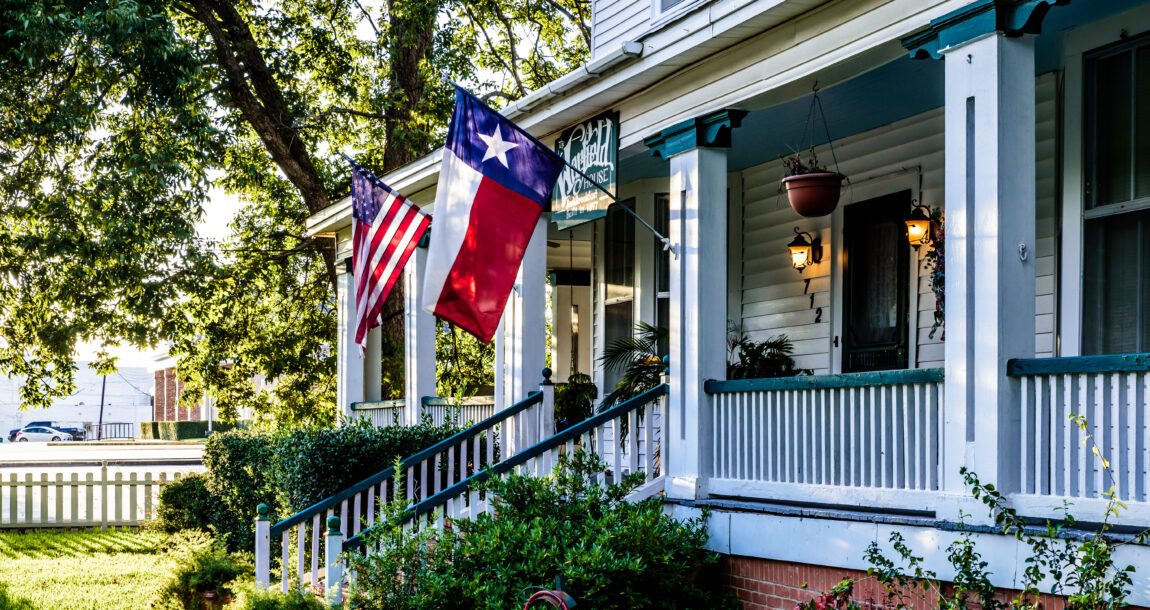Rising property costs, insurance complexity gauged by Texas House committee

By Brad Johnson
The Mexia News
Texas' insurance industry is a risky business, as the frequency and severity of weather events paralleling broader economic factors have caused ballooning premiums for ratepayers.
"We know that there are a lot of factors affecting the insurance market in Texas, and many of them we have no control over," state Rep. Tom Oliverson (R-Cypress) said in opening Tuesday's House Insurance Committee meeting.
Among the items on the agenda - which moved beyond the items with which it was tasked in the interim charges - was an evaluation of the property and casualty insurance environment. At root, insurance is a risk mitigation practice: pay a little now on the off chance of avoiding much higher costs down the road. The industry is long on rising costs and short on answers to solve it.
Cassie Brown of the Texas Department of Insurance told the committee that premiums paid last year in the State of Texas have grown 30 times the amount in 1964, which were $9 billion in 2024 dollars.
Automobile insurance rates are up 25.5 percent from last year and homeowners' insurance rates are up 21.1 percent, according to Brown. Costs are rising and it is felt - and the causes are generally outside the reach of the State of Texas.
Inflation is the closest factor at hand - the general increase in costs relative to past prices. The Consumer Price Index shows a rate of 3.3 percent above prices for all items as of 12 months ago. But that's an average across all kinds of industries.
Panelists told the House committee that the inflation shouldered in the insurance industry is a lot higher. The average cost of a new automobile is $40, 000, a 30 percent increase over the last five years. For homes, that average value is $350, 000 and a 40 percent increase over that period.
Practically, that means a replacement for both of those products is significantly higher, thus feeding a larger cost to insure. Supply chain problems, many of which are still lingering from the COVID-19 shutdowns, have caused a rise in cost for raw materials and component goods alike; global conflicts like the wars in Ukraine and the Middle East affect this too.
Other macroeconomic factors contributing to the cost increase are the frequency and severity of losses from weather events. Just this year, the state has felt multiple floods in Southeast Texas, tornadoes in the Dallas-Fort Worth metroplex, and a massive wildfire in the Panhandle. And hurricane season has only just begun.
Mankind has become more resilient to weather catastrophes than it's ever been - climate-related deaths over the past century have dropped nearly 100 percent-but property is still damaged each time and it has a cost to replace. When repairs or replacements become more common, their frequency costs insurance companies a lot.
Anyone living on the Gulf Coast knows how much windstorm insurance is - so expensive that the state had to create its own quasi-insurance company because the private industry shied away from the area.
It's so expensive there because the payout for an insurance company is a matter of when not if. The other side ofthe weather question is the severity of losses. The cost of repair for a roof is substantially lower than to fully replace it, and panelists operating within the industry said they're seeing more full replacements than before.
When it comes to automobiles, economic losses from vehicular accidents are up 40 percent over the last five years, according to data from the Texas Department of Transportation. About half of that increase occurred from 2020 to 2021; one panelist theorized that fewer people were learning to drive well after the COVID-19 closures.
It may take a while to be felt, but cost of everything flows downstream. An increase in price at point A along the supply chain for a widget will eventually hit point Z, the consumer. And there are 24 other points along that chain, each facing its own rise in cost.





As insurance costs rise, some Louisianans drop insurance, raising alarms
Affluent Americans underprepared to transfer wealth to heirs
Advisor News
- Why aligning wealth and protection strategies will define 2026 planning
- Finseca and IAQFP announce merger
- More than half of recent retirees regret how they saved
- Tech group seeks additional context addressing AI risks in CSF 2.0 draft profile connecting frameworks
- How to discuss higher deductibles without losing client trust
More Advisor NewsAnnuity News
- Allianz Life Launches Fixed Index Annuity Content on Interactive Tool
- Great-West Life & Annuity Insurance Company Trademark Application for “SMART WEIGHTING” Filed: Great-West Life & Annuity Insurance Company
- Somerset Re Appoints New Chief Financial Officer and Chief Legal Officer as Firm Builds on Record-Setting Year
- Indexing the industry for IULs and annuities
- United Heritage Life Insurance Company goes live on Equisoft’s cloud-based policy administration system
More Annuity NewsHealth/Employee Benefits News
- Sick of fighting insurers, hospitals offer their own Medicare Advantage plans
- After loss of tax credits, WA sees a drop in insurance coverage
- My Spin: The healthcare election
- COLUMN: Working to lower the cost of care for Kentucky families
- Is cost of health care top election issue?
More Health/Employee Benefits NewsLife Insurance News